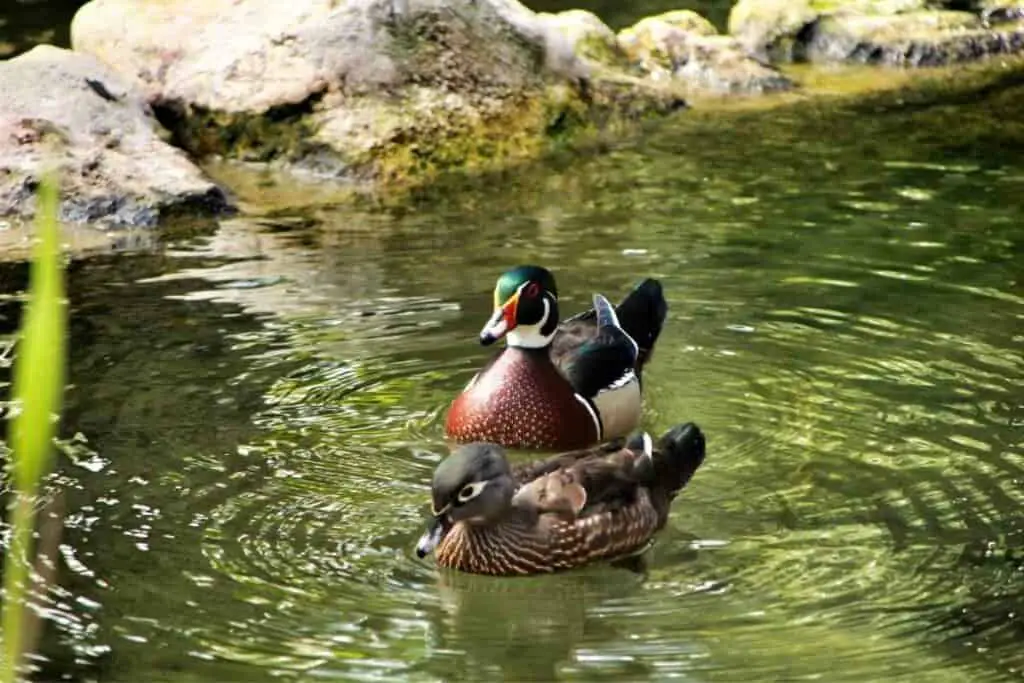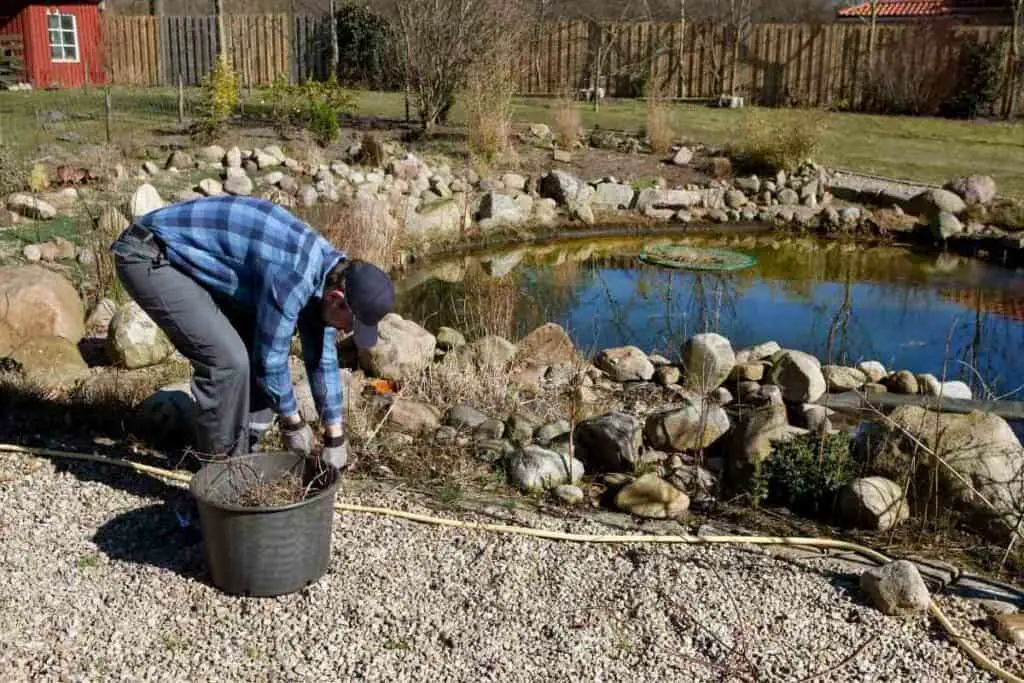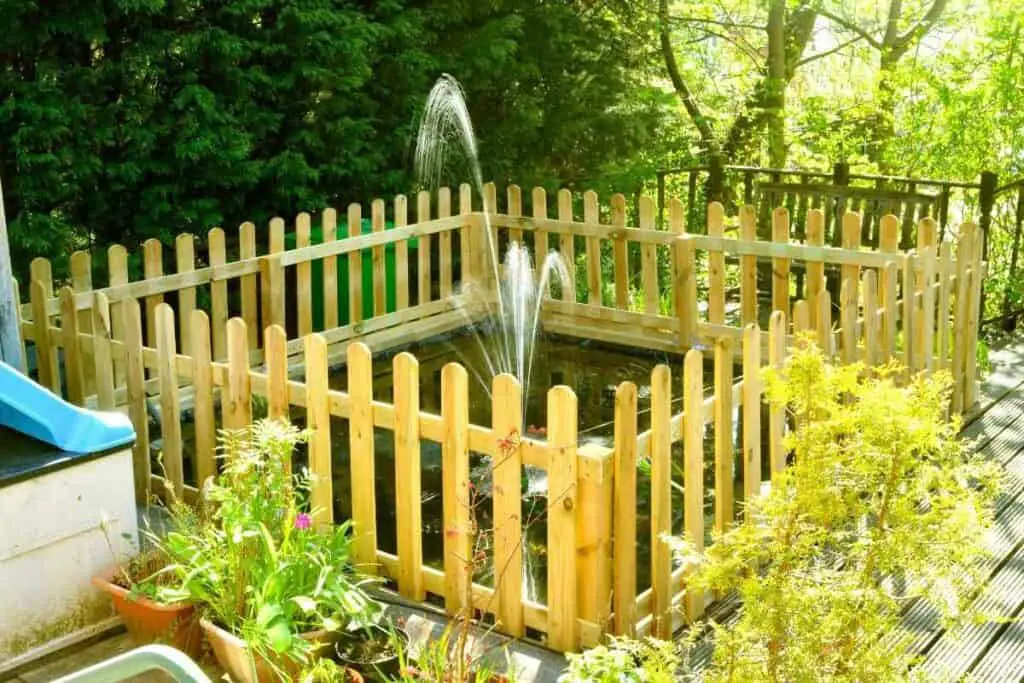Attracting ducks to your pond is no easy task and anyone who has tried will confess that some ponds will attract more ducks than others.
Wild ducks appear to be quite fickle creatures that choose the ponds they frequent under some unwritten code of ‘conduckt’.
Many avid duck enthusiasts have noted some of the most favored conditions to transform your pond into a bird-friendly backyard oasis.
Wild ducks are migratory and it is tricky to entice wild ducks to stay in small backyard ponds. Many have had success enticing ducks by creating a hospitable environment with plenty of shelter, offering ample amounts of food, and keeping water quality in excellent condition. Deterring natural predators such as foxes, cats, dogs, raccoons, and coyotes is also important.

Table of Contents
Why ducks are so hard to attract to backyard ponds
There are over 40 species of ducks in North America with each species having a very specific habitat they prefer. Very few ducks will frequent backyard ponds because most smaller ponds do not have the right habitat to attract them there.
Mallards and wood ducks are the most common visitors to backyard ponds and are some of the few duck species that are comfortable in close proximity to humans.
A greater presence of threats and predators, as well as more abundant food sources in larger lakes and reservoirs also impacts the reluctance for wild ducks to frequent smaller ponds located in densely populated areas.
How to attract wild ducks to stay in ponds
While the general consensus is that it is very difficult to attract wild ducks to a small pond in a residential backyard, it isn’t impossible and some have found success in enticing a few feathered friends.
Let’s look at some of the tried and tested methods for successfully attracting wild ducks to a pond and how to get ducks to stay in ponds.
Water quality and pond size
Wild ducks require a significantly larger body of water to feel comfortable compared to other water-dwelling birds.
The most important aspect of encouraging wild ducks to stick around in a pond is to make sure the waterway is accessible and open.

When it comes to pond size, the larger the pond, the more chance you have of attracting wild ducks.
Water quality also plays an important role in attracting ducks to any pond. Clear and clean water encourages a variety of plant species above and below the waterline.
These aquatic plants are the perfect breeding ground for water-based insects, which are a primary food source for many species of duck.
Provide various food sources at your pond
Ducks have insatiable appetites and will eat everything from seed, grains, birdseed, and food scraps, to slugs, earthworms, and insects.
Wild ducks will also eat berries from trees and bushes, as well as small aquatic insects they find in the water.
Creating a diverse environment that encourages a few different food sources for visiting ducks will go a long way to encouraging them to stay.
Plant fruiting shrubs or trees nearby to the pond and a marsh area or composting mound will encourage ducks to forage for insects, earthworms, and slugs.
Use a large deck or create a pontoon and spread birdseed, or grains regularly to entice wild ducks during their migration season. Cracked corn also works well to attract certain species of wild duck to ponds.
While most will likely stay for a quick feed (if at all), there’s a greater chance of them coming back if there’s a good amount of food readily available. After all, who doesn’t love a good buffet!
Fence off your pond
By nature, wild ducks are very nervous creatures and scare easily. They are constantly on alert and looking out for any potential threats and dangers, such as foxes, feral cats, racoons, or even domesticated dogs or other pets.

Fencing off your pond gives ducks more of an opportunity to enjoy a pond without disturbances from other animals. Fences, pontoon areas, or islands in the middle of the waterway allow ducks to relax and enjoy the water without the constant threat of predators.
A fence will also prevent larger animals and livestock (cows, horses, deer) from entering the pond and churning up the water. This in turn keeps the waterways free of disturbance and encourages aquatic plants and insects.
Eliminate the use of insecticides and herbicides
Ducks are very sensitive creatures and will avoid areas that contain concentrations of insecticides or herbicides. Insecticides reduce a food source for ducks and lead to the altering of a ducks’ preferred habitat.
Herbicides used on plants can also poison ducks. Food sources ducks find that are covered in dangerous insecticides can cause poisoning or severe discomfort for many ducks and waterbird species.
Avoid using any pesticides too, especially rat and mouse poisons as these can cause havoc on many species of bird.
Keeping the waterway and surrounding landscape as clean and chemical-free as possible will help promote duck visitors who may eventually decide to stick around for a while.
Add duck decoys
A duck decoy is a man-made duck replica that is usually made of wood or plastic and is painted to resemble a real duck.
Duck decoys have been used for hundreds of years to attract real ducks to ponds and waterways. Add some duck decoys to your pond to attract the attention of wild ducks that may be passing by.
Summary
While it can be very difficult to attract new colonies of wild ducks to your own residential pond, keeping the waterway open and as clean as possible will help encourage ducks to stay in ponds.
It’s important to provide a welcoming and hospitable environment for ducks. Provide ducks with plenty of food, and fence off your pond from other animals that may threaten wild ducks.
When all else fails, it may be worth visiting a rescue center, as there are many opportunities to rescue unwanted pet ducks or surplus ducks from local breeding farms.




